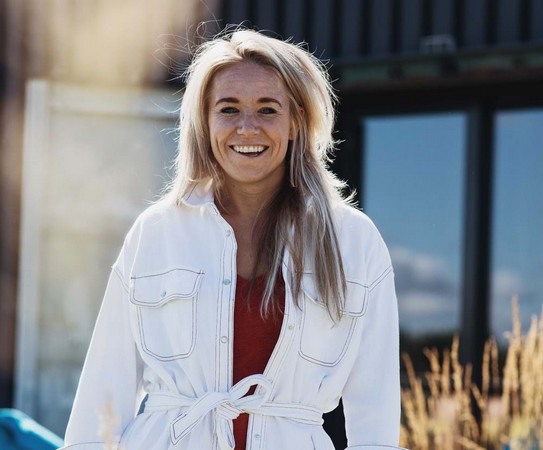Since 2019, Jeannette has been a freelance project manager at Plant Empowerment. Plant Empowerment is a data-driven cultivation philosophy that leads to more sustainable and profitable cultivation by balancing the three key growth factors. Jeannette motivates and supports growers and investors worldwide to grow according to these principles. The goal is obvious: to make horticulture more sustainable.
Why is Plant Empowerment necessary for the future of greenhouse horticulture?
Jeannette: "The easiest and most obvious link is with the energy issue. After all, the aim is that greenhouse horticulture will no longer emit CO2 by 2040. And if you look at that ambition, the Plant Empowerment philosophy is a path that helps growers reduce their energy use. But it goes beyond that. The basis of Plant Empowerment is that the plant is central: what does the plant need to grow well? By measuring this, growers can cultivate in a more targeted way and make more efficient use of energy, water, and fertilizers."

Statement: Sustainable cultivation is within reach of every grower.
Jeannette: "I think this statement is too short-sighted. Growing more sustainably? Absolutely. But sustainable cultivation? No. If you look at sustainable cultivation, you come to the critical question: what is sustainability? If you peel that off, it is a way of cultivation in which we do not exhaust the earth at all, where we leave the earth in the same state and do not harm it for the next generations—a zero-tolerance environmental footprint. That is quite a big issue and too big for just the horticultural chain.
But if you're talking about more sustainable cultivation, that is absolutely within everyone's reach. Every grower can do something to use resources more efficiently. Great strides have already been made in the horticultural sector, but there is still room for improvement. In pioneering growers, you can see those who continue to take new steps."
What is the biggest gain in making greenhouse horticulture more sustainable: saving energy, reducing water consumption, or crop protection (organic)?
Jeannette: "I can't give just one answer or make a choice. If you look at sustainability, the essence is that it is all connected. Energy is obvious; we are working towards that goal of growing without fossil fuels by 2040. In my view, energy often gets the most attention from people, including those outside the horticultural sector. And that's a good thing, of course, but sustainability goes beyond energy. It's about having a healthy ecosystem. That is the basis of our society. We can live on this earth through diversity, healthy ecosystems, and plants; that is the basis. It is, therefore, difficult to say what is the most important. Because if you focus on one element, for example, energy, and on the other hand use many crop protection products, then that in turn affects the bee. Then, on the one hand, we produce shelves full of vegetables, but the fruit shelves are empty. Do you understand? It is precisely that connection, that coherence."
What is the role of greenhouse horticulture in feeding the world population, now and in the future?
Jeannette: "If you look purely at the numbers, we mainly eat rice, wheat, and maize. About two-thirds, I think. Vegetables are therefore in the minority. But if you look at the technology used in greenhouse horticulture, the sector is an example of open field crops. Many techniques are translated. Greenhouse horticulture is at the forefront of innovation. We can also translate the Plant Empowerment philosophy into the open field. We are currently focusing on greenhouse horticulture because you can control the climate well in the greenhouse. Our Implementation Partners are also focused on implementation in the greenhouse. But if you look at the philosophy itself, it is also perfectly applicable to outdoor cultivation. Something for the future…."
Statement: In 2040, the entire greenhouse horticulture sector will be CO2-neutral. (The ambition of Greenhouse Horticulture Netherlands)
Jeannette: “I am an optimist. I hope and believe that it is possible. I do think that we cannot place that responsibility solely on the growers. In my opinion, we do not yet work together enough in the horticultural chain. And more help from the government is needed. For example, horticulturists can be better helped to connect with industry, residential areas, geothermal projects, etc.
Surely, we cannot expect a grower to suddenly become an energy producer. That's a whole different kind of sport. Some growers stick out their necks. Frontrunners who take risks with their initiatives. Super great to see. But they are also struck when regulations and subsidies change. Regulations are slow and erratic. Very frustrating for growers and not a good starting point for investing in sustainability.
If we go one step further, I think climate should not be a government portfolio but a theme for a different body. The global climate problem is an all-encompassing theme that should not depend on a government. It is about the future of our earth. That requires a long-term policy and not a changing of the guard every four years."
For more information: 
Ludvig Svensson
[email protected] www.ludvigsvensson.com
